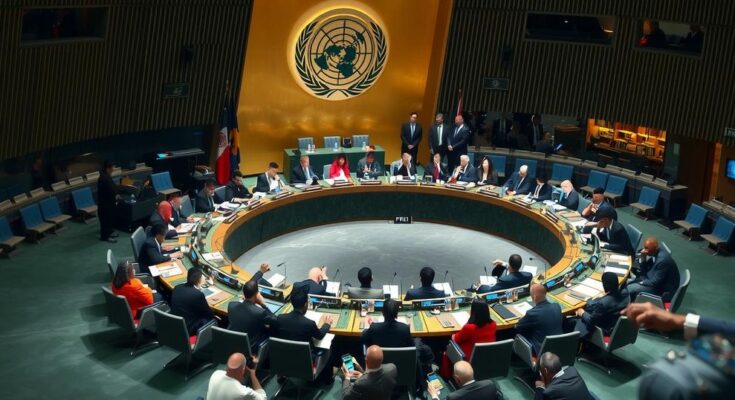The United Nations Human Rights Council’s 57th session saw the adoption of resolutions aimed at improving human rights conditions in Russia, Sudan, Venezuela, and Afghanistan. While certain mandates were renewed to address key human rights issues, the Council faced criticism for its inaction concerning Palestine, Yemen, and Xinjiang. FIDH emphasized the need for continued vigilance and enhanced accountability for victims of human rights abuses.
In its recent session, the United Nations Human Rights Council acknowledged the urgent human rights issues in various regions. The International Federation for Human Rights (FIDH) expressed satisfaction over the resolution guiding the Russian Federation’s engagement with UN human rights protocols and protecting civil society, including marginalized groups. The renewal of the Fact-Finding Mission in Sudan was celebrated as crucial for ongoing investigations into violations, marking an encouraging shift in African member state support. Furthermore, the mandate extension for the Fact-Finding Mission on Venezuela is seen as pivotal in delivering justice for victims. The ongoing investigations aim for accountability of those responsible for human rights abuses. A notable consensus was reached in renewing the Special Rapporteur on Afghanistan’s mandate, where FIDH called for a more robust independent mechanism to address the severe violations occurring within the country. As concerns escalate regarding human rights in Burundi ahead of the 2025 and 2027 elections, the Special Rapporteur’s mandate was renewed despite no support from African Council members. This monitoring is vital due to the Burundian government’s non-cooperation with international human rights mandates. However, the Council’s failure to confront human rights abuses against Palestinians, set up accountability for Yemen, or discuss Xinjiang in China has left FIDH disheartened. At the session’s conclusion, FIDH, alongside partner organizations, issued a statement reflecting civil society’s observations and vital takeaways from the 57th session of the Human Rights Council, underscoring the need for enhanced accountability and support for at-risk populations.
The 57th session of the Human Rights Council focused on critical human rights situations globally. Various resolutions and mandates were adopted concerning Russia, Sudan, Venezuela, Afghanistan, and Burundi, highlighting the ongoing struggles for justice and accountability. However, shortcomings were noted in addressing key issues, particularly in relation to Palestine, Yemen, and China, indicating areas that require urgent attention in future deliberations.
The outcomes of the 57th session underscore essential progress in ensuring accountability for human rights violations in several regions. However, there remains a pressing need for the Human Rights Council to face undisputed issues such as Palestinian rights, the situation in Yemen, and abuses in Xinjiang. The path to a robust international human rights framework relies on consistent engagement and action.
Original Source: www.fidh.org



